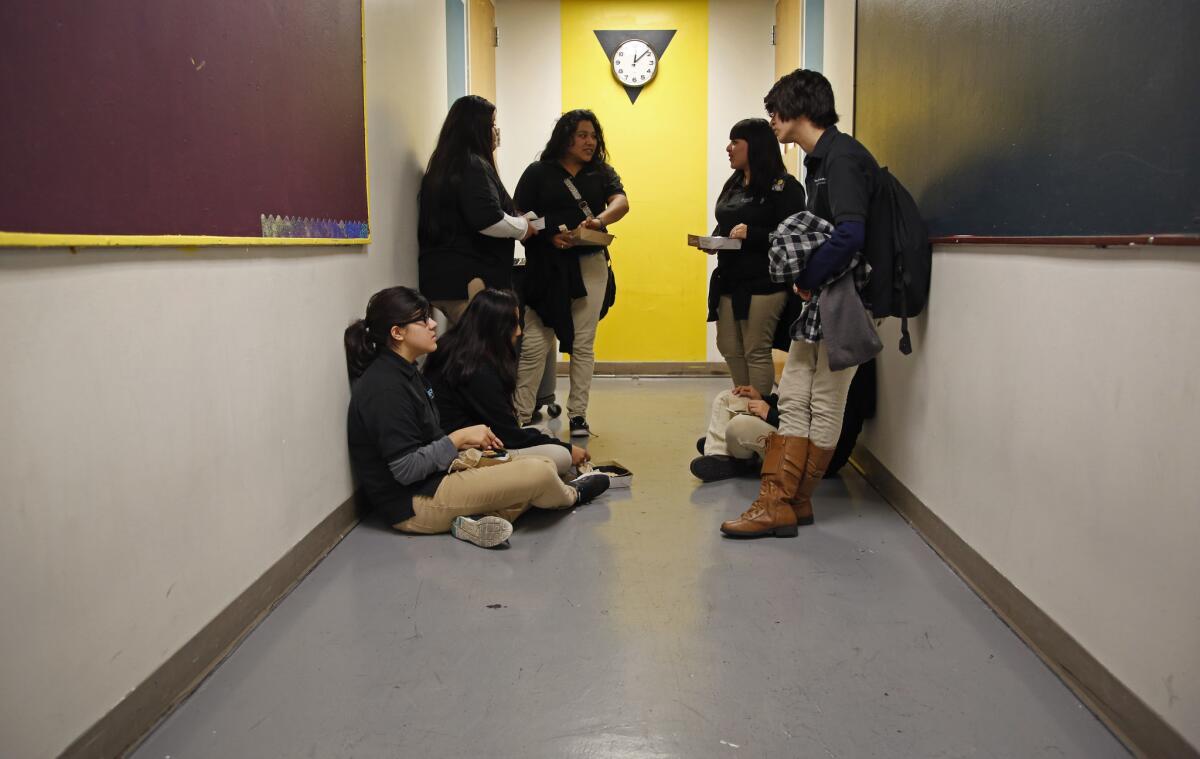LAUSD officials must revise how space is allotted to charter schools

Reporting from San Francisco — The California Supreme Court unanimously decided Thursday that the Los Angeles school district’s method for allocating space to charter schools may shortchange them classrooms.
In a decision written by Justice Goodwin Liu, the state’s highest court said the L.A. Unified School District’s formula may “undercount” the number of classrooms that charter schools are entitled to and should be replaced with a different method.
But whether the new method would lead to expansions for L.A. charter schools was unclear. The guidelines laid down by the court contained plenty of room for interpretation. Charter advocates predicted that at least some schools would get additional space. An attorney for LAUSD said no new charter school classrooms would be required.
The case was based on Proposition 39, which voters passed in 2000. It requires school districts to give charters facilities that are reasonably equivalent to those provided to students in traditional public schools. Charter schools are publicly funded and independently run. Most are nonunion.
The court said L.A. Unified violated a state regulation by allocating space to charters based on the number of classrooms staffed by teachers across the district. The law requires other space — including rooms used for study halls or libraries — to be part of the equation, the court said.
“Counting only those classrooms staffed by an assigned teacher would effectively impute to charter schools the same staffing decisions made by the District,” Liu wrote. “But there is no reason to think a charter school would necessarily use classrooms in the same way that the District does.”
David M. Huff, who represented LAUSD, said the district already shares libraries and other non-teaching rooms with on-site charters. Although the district must use a different formula in allotting space, “the math works out the same,” he said.
He said the district was pleased that the court rejected an attempt by charters to include space for preschool and adult education in the formula.
“The school district views this as a big win,” Huff said.
John Lemmo, a lawyer for a national alliance of charter schools, questioned how LAUSD could view the ruling positively.
“It means charter schools get more classrooms,” said Lemmo, who filed a friend-of-the-court brief in the case.
Phillipa Altmann, senior litigation counsel for the California Charter Schools Assn., which challenged LAUSD, said predicting the impact was difficult because charter schools do not have access to all the district’s information.
In allotting space, the district is supposed to look at similar schools nearby. But the court ruling did not clearly define what could be counted as a classroom for comparison purposes.
“We think in a lot of situations it will [lead to more space for charters] but it will depend on the comparison schools,” she said.
maura.dolan@latimes.com
Twitter: @mauradolan
Times staff writer Howard Blume in Los Angeles contributed to this report.
More to Read
Sign up for Essential California
The most important California stories and recommendations in your inbox every morning.
You may occasionally receive promotional content from the Los Angeles Times.











